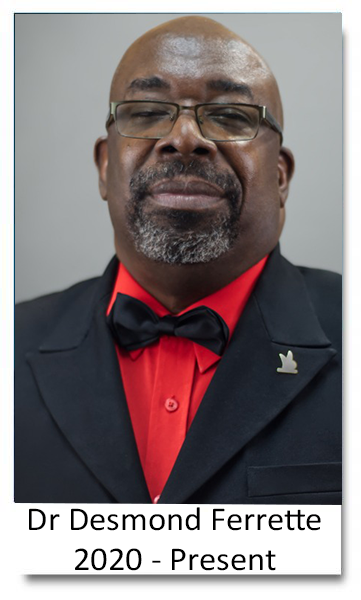How did WIST get here?
In 1946, missionaries of the Pentecostal Assemblies of Canada (PAOC) founded the West Indies School of Theology (WIST) in Trinidad. This school was intended to provide training for people who became pastors in the West Indies District of the Pentecostal Assemblies of Canada. The District currently embraces most of the English-speaking islands in the region and a small part of Venezuela and Brazil. As the vision expanded and the student body increased, classes were moved from the Woodbrook Pentecostal Chapel, its birthplace, to the El Dorado Pentecostal Church.
In 1954, the six-and-one-third-acre campus at Fourth Bridge, Maracas Valley, was purchased, and from that time has been the home of the School. Since its founding, the scope of the School has gone beyond training for pastoral ministry and now includes training for evangelism, missions, counselling, Christian education, leadership in para-church organizations, and general church leadership.
In 1966 the Pentecostal Assemblies of the West Indies (PAWI) became an independent body and four years later, a Caribbean national was appointed as President of the School for the first time. Since then the leadership of the institution has rested entirely in the hands of Caribbean nationals and all Presidents have been WIST graduates. PAWI continues to enjoy fraternal relations with PAOC.










The student population has increased significantly, from six in 1946 to an average of 250 over the past five years. Approximately 85 percent of our students come from member churches of PAWI. The remaining 15 percent comprise representatives from other evangelical church groups. Students are drawn mainly from the English-speaking Caribbean countries.
Graduates of WIST fill 98 percent of the pulpits of PAWI member churches. Other graduates are presently ministering in the United Kingdom, the United States, Canada, Kenya, Zambia, Ghana, Venezuela, Brazil and most of the English-speaking Caribbean islands.
The curriculum of the School has been broadened significantly since its foundation. New undergraduate offerings include Sociology, Social Work, Curriculum Development, Computing, Educational Technology, Sound Engineering, Audio-Visual and Performing Arts, and Psychology.
Students are now able to read for the Certificate programme through Extension Schools in Grenada, St. Vincent, Antigua, St. Lucia, Montserrat, North, South and Central Trinidad, and for the Interdisciplinary Diploma programmes through Extension schools in Tobago, Barbados and St Vincent, as well as the main campus. They are also able to pursue the Interdisciplinary Bachelor programmes at the main campus and the South Trinidad site. Facilities exist in some PAWI Districts to allow persons who are unable to reside in Trinidad to read for a degree through a modular programme that involves specific arrangements to instruct them in their home Districts.
WIST participates online in a Master’s programme in Interdisciplinary Studies, in association with the Caribbean Graduate School of Theology (CGST). Several WIST graduates have gone on to earn Master’s and Doctoral degrees abroad. The School also offers Honorary Doctorates during its graduation exercises to persons who have made outstanding contributions to the spread of the Gospel regionally and internationally.
Currently, WIST enjoys official registration status with the Accreditation Council of Trinidad and Tobago (ACTT), and all programmes are approved by the ACTT. One of the benefits of this registration is that students who are nationals of Trinidad and Tobago have access to the Government Assistance for Tertiary Education (GATE) programme which allows them to apply for 100% tuition assistance. WIST is a member of the Caribbean Evangelical Theological Association (CETA), and is a candidate for accreditation status with CETA and ACTT. WIST is also a member of Caribbean Area Network for Quality Assurance in Tertiary Education (CANQATE) and the Association of Caribbean Tertiary Institutions (ACTI).

